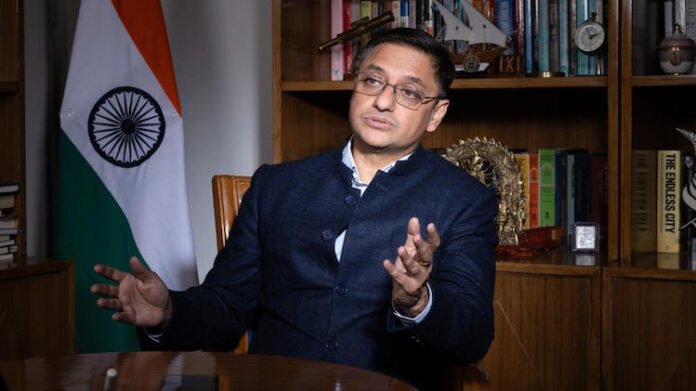Recently, noted economist and Principal Economic Advisor to the Government of India, Sanjeev Sanyal, has sparked a crucial conversation by highlighting concerns regarding the working hours of judges and the functioning of the collegium system. Sanyal’s call for reforms in the judiciary has reignited a long-standing debate on the need for greater accountability and transparency within the legal framework.
One of the central issues raised by Sanyal is the perceived lack of productivity among judges, particularly during the summer months. Critics argue that the extended summer vacation taken by the courts, often spanning several weeks, hampers the timely disposal of cases and contributes to the mounting backlog of pending litigation. While advocates of the practice defend it as necessary for judges to recharge and engage in administrative tasks, Sanyal’s critique underscores the need for a reevaluation of this tradition in light of contemporary demands for judicial efficiency.
The collegium system, which governs the appointment and transfer of judges in higher courts, has also come under scrutiny. Sanyal’s contention is that this system, characterized by a lack of transparency and accountability, may be susceptible to undue influence and favoritism. Critics argue that the opaque nature of the collegium’s decision-making process undermines public trust in the judiciary and raises questions about the selection criteria for judicial appointments.
Reforming the judiciary and the collegium system is no small task, but it is essential for upholding the principles of justice and ensuring the efficient functioning of the legal system. One proposed solution is to reduce the duration of judicial vacations and implement staggered holidays to ensure continuity in court proceedings. This would not only help in reducing the backlog of cases but also enhance the overall productivity of the judiciary.
Moreover, there is a pressing need to introduce greater transparency and accountability in the appointment and transfer of judges. Reforms could include establishing clear guidelines and criteria for judicial appointments, introducing mechanisms for public scrutiny of candidates, and promoting diversity and meritocracy within the judiciary. By enhancing the transparency of the collegium system, the judiciary can bolster public confidence and strengthen its role as a guardian of justice.
However, reforming the judiciary requires a collaborative effort involving the judiciary, the executive, and other stakeholders. It is essential to engage in constructive dialogue and consultation to identify areas for improvement and devise effective strategies for implementation. Judicial reforms should be guided by the principles of fairness, impartiality, and adherence to the rule of law, ensuring that they serve the interests of justice and the public good.
In addition to procedural reforms, there is also a need to invest in the modernization of court infrastructure and the adoption of technology to streamline judicial processes. The digitization of court records, the introduction of e-filing systems, and the use of video conferencing for hearings can significantly enhance the efficiency and accessibility of the legal system. By harnessing the power of technology, the judiciary can overcome geographical barriers and expedite the resolution of cases.
Ultimately, the call for reforms in the judiciary is a call for greater accountability, transparency, and efficiency in the administration of justice. Sanjeev Sanyal’s critique serves as a timely reminder of the imperative to address systemic challenges and modernize India’s legal framework to meet the evolving needs of society. By embracing reform and embracing change, the judiciary can reaffirm its commitment to upholding the rule of law and delivering justice for all.

